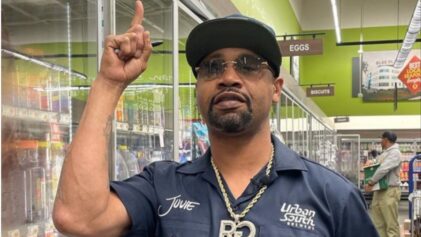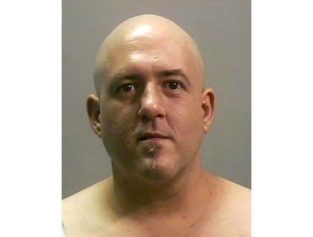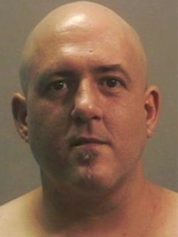The aftermath of Hurricane Katrina is still rocking New Orleans, as David Warren, the white police officer who was convicted three years ago of killing a man and participating in the burning of his body to cover up the act, was acquitted of the same charges yesterday by a different jury.
The family of Henry Glover, who was Black, broke down in disbelief yesterday in the courtroom when the verdict was announced that Warren would go free after killing the 31-year-old.
Warren, 50, joined his wife and five children for the first time in three years in an emotional reunion.
“It’s a wonderful, joyous feeling, but I’m almost numb at the same time,” he said after the verdict. “I’m so very pleased.”
While patrolling a NOPD detective bureau station in an Algiers strip mall just four days after Hurricane Katrina, Warren shot and killed Glover. He was charged with civil rights and weapons violations and was convicted in 2010, when he was sentenced to 25 years in prison.
But two years later, an appeals court granted Warren a new trial, ruling that he was unfairly tried alongside four other officers charged with the grisly cover-up of the shooting, which included setting a car carrying Glover’s body on fire and abandoning it on top of a levee in Algiers.
Though he doesn’t deny shooting Glover eight years ago, Warren still says he did the right thing.
“I believe I took the proper action that day,” he told reporters. “I do not have any regrets.”
While the jury in the first trial heard lurid testimony about a burned body and a brazen cover-up, this time jurors didn’t hear any talk about what happened to Glover’s body or about falsified police reports on the shooting. The three-judge panel from the 5th U.S. Circuit Court of Appeals ruled that Warren should have been tried separately from the four other former officers who were charged in the alleged cover-up.
Dane Ciolino, a law professor at Loyola University in New Orleans, told the Guardian that prosecutors faced the difficult burden of having to prove that Warren “willfully” took the life of a man he never met before the deadly encounter.
“This came as absolutely no surprise to me,” Ciolino said of Warren’s acquittal. “Once you take away the burned body and the cover-up, it then just boils down to whether it was a bad shoot.”
Aftet the verdict, Glover’s sister, Patrice Glover, slumped over and cried so loudly that U.S. District Judge Lance Africk paused as he spoke to jurors. Patrice Glover was carried out of the courtroom as several jurors wiped away tears.
“He was a good child,” Patrice Glover said of her brother. “That was my baby.”
U.S. Attorney Kenneth Allen Polite Jr. said in a statement that prosecutors were disappointed by the verdict but thanked jurors for their “attentive service.”
On Monday, Warren had testified that he feared for his life when he shot Glover. He said he thought he saw a gun in Glover’s hand as Glover and another man ran toward the building Warren was guarding. But prosecutors said Glover wasn’t armed and didn’t pose a threat.
Defense attorney Richard Simmons said the case was always about “a policeman’s worst nightmare, that split-second decision.”
“The benefit of the doubt has to go to the officer,” Simmons said.



